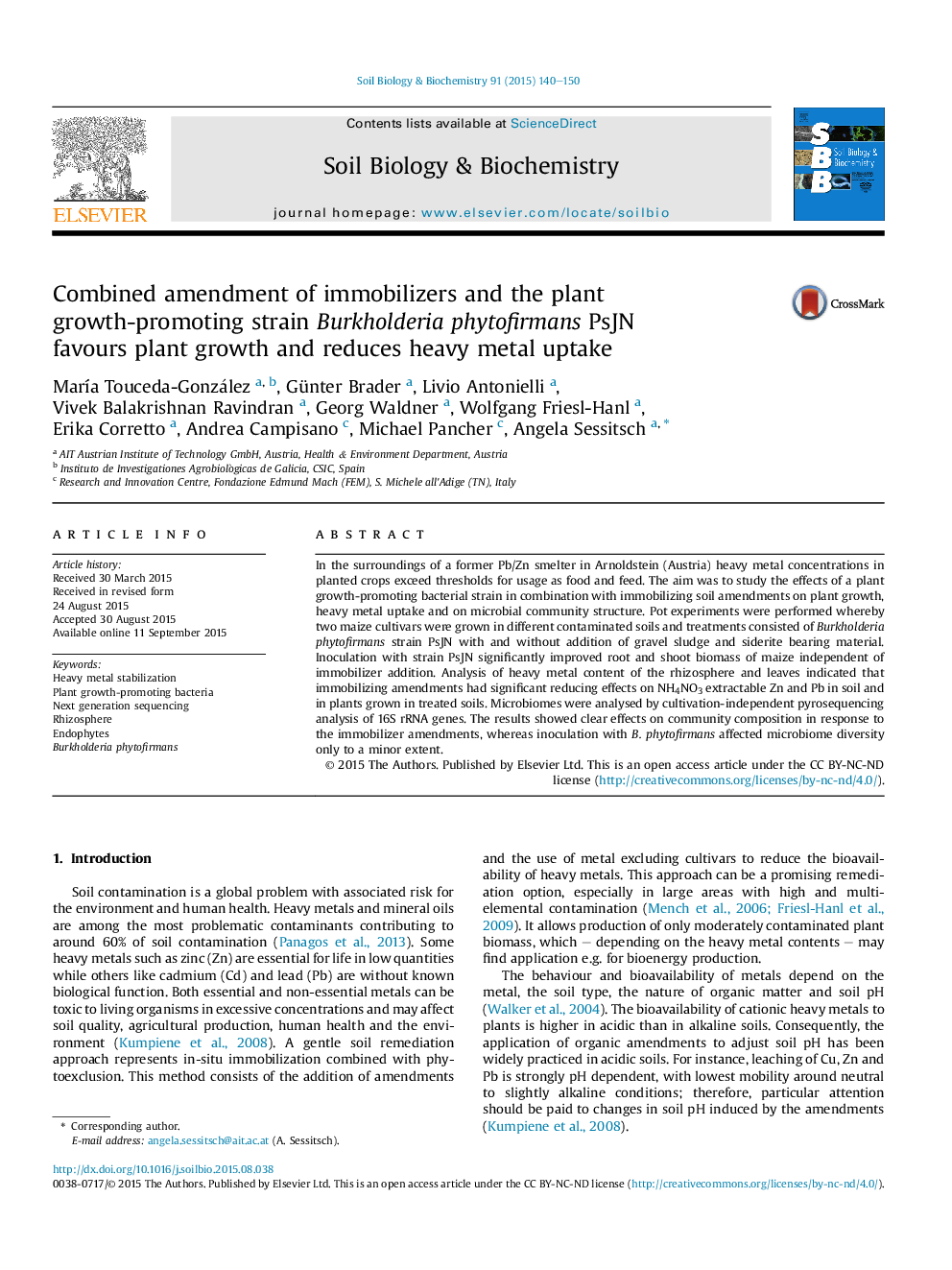| Article ID | Journal | Published Year | Pages | File Type |
|---|---|---|---|---|
| 8363788 | Soil Biology and Biochemistry | 2015 | 11 Pages |
Abstract
In the surroundings of a former Pb/Zn smelter in Arnoldstein (Austria) heavy metal concentrations in planted crops exceed thresholds for usage as food and feed. The aim was to study the effects of a plant growth-promoting bacterial strain in combination with immobilizing soil amendments on plant growth, heavy metal uptake and on microbial community structure. Pot experiments were performed whereby two maize cultivars were grown in different contaminated soils and treatments consisted of Burkholderia phytofirmans strain PsJN with and without addition of gravel sludge and siderite bearing material. Inoculation with strain PsJN significantly improved root and shoot biomass of maize independent of immobilizer addition. Analysis of heavy metal content of the rhizosphere and leaves indicated that immobilizing amendments had significant reducing effects on NH4NO3 extractable Zn and Pb in soil and in plants grown in treated soils. Microbiomes were analysed by cultivation-independent pyrosequencing analysis of 16S rRNA genes. The results showed clear effects on community composition in response to the immobilizer amendments, whereas inoculation with B. phytofirmans affected microbiome diversity only to a minor extent.
Keywords
Related Topics
Life Sciences
Agricultural and Biological Sciences
Soil Science
Authors
MarÃa Touceda-González, Günter Brader, Livio Antonielli, Vivek Balakrishnan Ravindran, Georg Waldner, Wolfgang Friesl-Hanl, Erika Corretto, Andrea Campisano, Michael Pancher, Angela Sessitsch,
